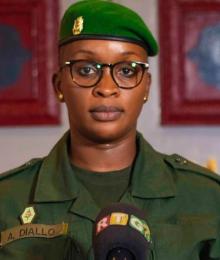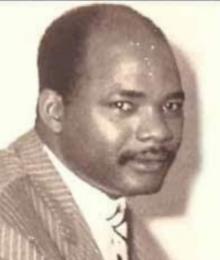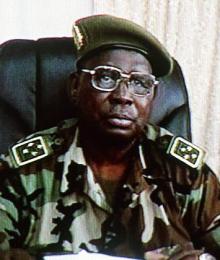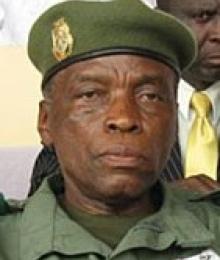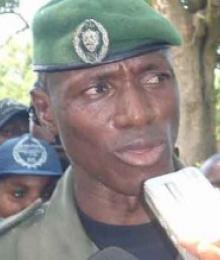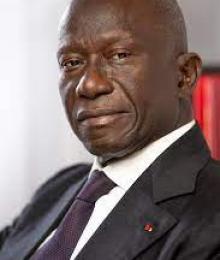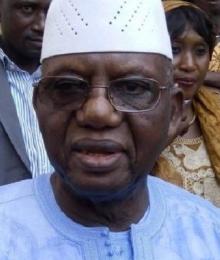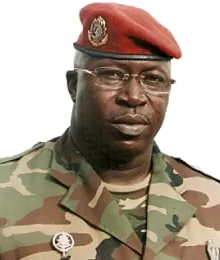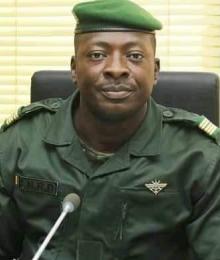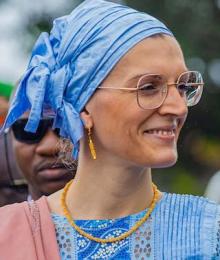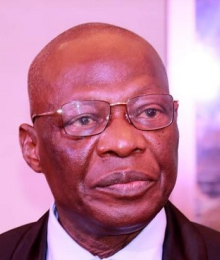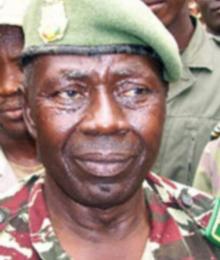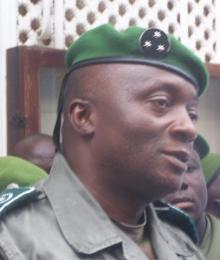
General Ibrahima Baldé is a Guinean military officer who led the National Gendarmerie from 2009 to 2021, during which he undertook a deep reform of the institution. Appointed as the High Commander of the National Gendarmerie and Director of Military Justice, he distinguished himself through a vision focused on professional training and discipline, transforming a criticized force into a respected body in West Africa.
He also held crucial roles in electoral security as the commander of the Special Election Security Unit (USSEL), overseeing the security of several national elections. His career ended in October 2021 when he was retired by decree from Colonel Mamadi Doumbouya following the coup d'état. Baldé remains a respected figure for modernizing the Guinean gendarmerie and improving relations between law enforcement and the civilian population.
Introduction
General Ibrahima Baldé has emerged as one of the most respected military figures in contemporary Guinea. His exemplary career at the helm of the Guinean National Gendarmerie, his reformist vision, and his professional integrity have significantly contributed to transforming the country's defense and security forces. This is the portrait of an officer who has dedicated his career to serving the Republic and modernizing a vital institution.
A Transformational Leadership
Appointed to lead the Guinean National Gendarmerie in 2009, General Ibrahima Baldé quickly demonstrated visionary leadership. At a time when the reputation of Guinea's security forces was marred by decades of controversial practices, his appointment marked the beginning of a new era for this paramilitary institution.
From the outset, General Baldé prioritized a deep reform of the corps he commanded. His goal was clear: to restore the image of the National Gendarmerie and make it a respected, professional institution dedicated to serving the Guinean people. To achieve this, he implemented a series of bold measures that gradually transformed this security force.
Under his leadership, the Guinean Gendarmerie became an example in the West African region and even throughout sub-Saharan Africa. This success was based on the rigorous application of the Head of State's recommendations, as well as General Baldé's ability to mobilize the entire paramilitary body to meet the nation's needs.
Training as the Pillar of Professionalism
For General Baldé, training was the cornerstone of the Gendarmerie's reform. His vision could be summarized in a simple yet powerful formula that he instilled throughout the institution: "A poorly trained gendarme has no place in the ranks."
True to this conviction, he initiated numerous training modules for troops, non-commissioned officers, and senior officers. These trainings covered essential topics such as respect for human rights, mastery of the penal and civil codes, jurisprudence, and the strengthening of the military character and basic skills of the gendarmes.
The results of this intensive training policy quickly became evident. In the streets of Conakry, arbitrary arrests significantly decreased, giving way to growing professionalism. The relationship between citizens and gendarmes gradually improved, contributing to a more harmonious coexistence.
Discipline as a Driver of Performance
Under General Baldé's command, discipline became a cardinal value within the National Gendarmerie. This disciplinary rigor positively transformed the relationship between law enforcement and the population.
This approach was particularly evident in the management of public demonstrations. Unlike previous practices often marked by excesses, the gendarmes developed a more republican approach to handling marches and protests. Many gatherings took place without major incidents, injuries, or casualties.
The international community noticed these positive changes. Many international partners expressed satisfaction with the progress made by the Guinean Gendarmerie under General Baldé's leadership, reinforcing the institution's credibility on the global stage.
A Key Role in Securing Electoral Processes
Securing electoral processes is a significant challenge for any developing democratic country. In Guinea, General Ibrahima Baldé played a crucial role in this sensitive area.
In September 2015, he was appointed to lead the "Presidential Election Security Unit" (USSEL) by President Alpha Condé. This unit, under the supervision of the Independent National Electoral Commission (CENI), was responsible for securing the electoral process. To carry out this mission, nearly 20,000 personnel, including 8,925 police officers, 8,855 gendarmes, and 1,133 civil protection agents, were mobilized.
This experience was repeated during the legislative elections coupled with the referendum and the presidential election of October 18, 2020. Each time, the USSEL, led by General Baldé, ensured the security of the process before, during, and after the elections.
His mission included several components: securing the electoral campaign and candidates, transporting electoral materials, protecting polling stations, securing vote counting and the transport of results to centralization centers, and protecting the administrative commissions until the provisional results were announced.
General Baldé consistently emphasized the neutrality and impartiality of the security forces in fulfilling their mission. He regularly reminded USSEL agents to strictly adhere to the code of conduct for security services and respect human rights.
Crisis Management and Adaptation to Contemporary Challenges
Throughout his career, General Baldé faced numerous crises that tested his leadership and adaptability. The COVID-19 pandemic was a significant example.
After the President declared a health emergency, the National Gendarmerie under his command actively enforced the curfew imposed in Greater Conakry and other regions. They also secured healthcare personnel involved in the fight against COVID-19, as well as testing and epidemiological treatment centers.
General Baldé also ensured that the Gendarmerie participated in raising awareness about preventive measures, both among military personnel and their families. This experience enriched the gendarmes' training, later integrating epidemic prevention methods into their learning modules.
Faced with increasing road insecurity, particularly the phenomenon of "highway robbers," General Baldé adapted the Gendarmerie's strategies. In June 2021, he announced a new approach to track down these criminal gangs operating on various national roads.
Testimony on the Events of September 28, 2009
General Ibrahima Baldé played a crucial role in shedding light on the tragic events of September 28, 2009, during which more than 157 people lost their lives and over a hundred women were sexually assaulted at the Conakry stadium.
In December 2023, he testified before the criminal court of Dixinn to contribute to the truth about this painful case. As Chief of Staff of the Gendarmerie at the time, he provided valuable insights into the planning surrounding the demonstration of the "Forces Vives" movement.
His testimony helped clarify the sequence of events and the responsibilities of the various actors involved. He notably recounted the meeting held at Camp Alpha Yaya on September 27, 2009, during which instructions were given to the different security forces.
End of Career and Legacy
After over a decade at the helm of the National Gendarmerie, General Ibrahima Baldé's career ended on October 11, 2021. A decree by Colonel Mamadi Doumbouya retired him from his duties, along with several other generals, following the coup of September 5, 2021.
Despite this abrupt end, General Baldé's legacy remains substantial. Under his command, the Guinean National Gendarmerie profoundly transformed, gaining professionalism and public respect. His approach, centered on training, discipline, and respect for human rights, laid the foundation for a more modern and law-abiding institution.
Conclusion
General Ibrahima Baldé's journey illustrates the positive impact enlightened leadership can have on an institution. By emphasizing training, discipline, and human rights, he transformed a once-criticized gendarmerie into a respected institution.
His motto, "We are at the service of the Republic," perfectly encapsulates his vision. His legacy will continue to influence the Guinean Gendarmerie, serving as an example for future military leaders in the country.











